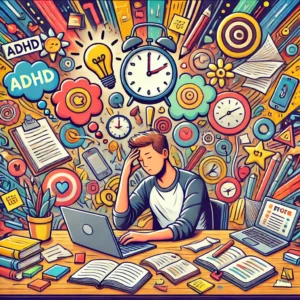Attention Deficit Hyperactivity Disorder (ADHD) is a condition that affects focus, self-control, and impulsivity, making it challenging for individuals to manage daily tasks and stay engaged in long-term activities. People with ADHD often seek alternative ways to manage their symptoms, and martial arts like Kung Fu have emerged as a way of combating this. But can Kung Fu training really help people with ADHD? The answer, supported by various studies and anecdotal evidence, leans toward a resounding yes! Let’s explore why.
Focus and Mindfulness
Kung Fu is more than just a martial art; it’s a discipline that requires intense focus, patience, and attention to detail. The repetitive nature of learning and continuous improvement, can help build tolerance for long term activities and improve self awareness. For individuals with ADHD, this can be incredibly beneficial. Kung Fu helps train the brain to concentrate on specific tasks, blocking out distractions. This goes hand in hand with the system being built on “muscle memory”, meaning you can continue to learn even when distracted mentally. Over time, this heightened focus on movements can carry over to other areas of life, improving attention and the ability to concentrate on daily tasks.
Physical Activity and ADHD
ADHD is often characterised by hyperactivity or an excessive need to move, which can lead to restlessness and difficulty staying still. Regular physical exercise has long been shown to help reduce these symptoms by releasing endorphins and improving feelings such as anxiety and much more! Kung Fu, with its fast-paced routines and demanding physical exertion, provides an ideal outlet for this energy. The structured training sessions offer a combination of high-intensity movement and rest periods, allowing individuals with ADHD to burn off excess energy while maintaining focus on the practice.
Moreover, physical activity in Kung Fu enhances the brain’s production of dopamine, norepinephrine, and serotonin — chemicals that are often found in lower levels in individuals with ADHD. These neurotransmitters are critical for regulating attention and mood, meaning that engaging in Kung Fu can offer a natural boost to the brain’s functioning, similar to the effects of medication.

Discipline and Self-Regulation
One of the most important aspects of Kung Fu is the emphasis on discipline and self-regulation. Practitioners must adhere to the Kung Fu Creed and the Master’s Oath, show respect for their instructors, and remain committed to their training. For someone with ADHD, these elements are great general practice. The structure and routine of Kung Fu provide a framework that helps manage the impulsivity and inattentiveness often associated with ADHD. By learning to control their movements, individuals also learn to control their emotions and reactions, fostering a sense of self-awareness that is often difficult to achieve.
Boosting Confidence and Emotional Control
Children and adults with ADHD may struggle with self-esteem due to difficulties in school, work, or social settings. Kung Fu offers a pathway to build confidence through skill mastery and consistent improvement. Each accomplishment, whether it’s learning a new form or advancing to the next grade, provides a significant sense of achievement. This sense of progress can have a positive impact on emotional health and self-worth.
Furthermore, Kung Fu teaches students how to remain calm under pressure, which is especially useful for those who struggle with emotional dysregulation. The art’s focus on breathing techniques, mindfulness, and controlled movements can help individuals with ADHD manage stress, anxiety, and frustration.
Conclusion
While Kung Fu is not a cure for ADHD, it offers multiple benefits for managing symptoms. The focus on discipline, physical activity, and emotional regulation aligns with the needs of those with ADHD, making it an impactful activity. Whether for children or adults, Kung Fu can provide a structured, engaging, and holistic approach to improving attention, reducing hyperactivity, and boosting confidence. If you or someone you know has ADHD, exploring martial arts like Kung Fu might be a powerful step toward personal growth and better symptom management.
